French President Emmanuel Macron has appointed François Bayrou, a centrist leader and head of the MoDem party, as the new Prime Minister in a strategic move to address France’s ongoing political crisis.
This appointment follows the dismissal of Michel Barnier, Macron’s former Prime Minister, who was ousted just three months into his tenure after losing a no-confidence vote in the National Assembly.
Bayrou, 73, is seen as a consensus builder with moderate relationships across the political spectrum.

However, his appointment comes at a time of significant challenges. The French parliament remains deeply divided following snap elections earlier this year, which created a stalemate among three major blocs—the left, the center, and the far-right. Macron’s minority government has struggled to pass key legislation, including budgetary measures, due to a lack of support.
Bayrou’s immediate task will be to form a stable government that can survive a fragmented National Assembly.
The previous government collapsed after the far-right National Rally, led by Marine Le Pen, joined left-wing MPs to block Barnier’s proposed €60 billion plan of tax increases and spending cuts aimed at reducing France’s budget deficit, projected to hit 6.1% of GDP this year.
While Bayrou’s appointment has been praised by some centrist and center-left allies, it has been criticized by opposition leaders.
Far-left France Unbowed leader Manuel Bompard called the political process a “pathetic spectacle,” while Socialist regional leader Carole Delga described it as a “bad movie.”
Socialist leader Olivier Faure confirmed that while his party would engage in dialogue, they would not join Bayrou’s government, citing his alignment with Macron’s camp.
The Greens and Communists, though open to discussions, expressed a preference for a left-leaning Prime Minister rather than a centrist.
Marine Le Pen, meanwhile, has demanded that her party’s policies, particularly on immigration and the cost-of-living crisis, be reflected in the new government’s agenda to secure her support.
Bayrou’s appointment followed tense negotiations at the Elysée Palace. Reports suggested Macron initially preferred another ally, Roland Lescure, but shifted to Bayrou after the MoDem leader threatened to withdraw his party’s support. This underscores the fragile alliances Macron must navigate to govern effectively.
In his acceptance, Bayrou acknowledged the complexity of his task, stating, “Reconciliation is necessary.” He quickly moved into the Prime Minister’s residence at Hôtel Matignon, symbolizing the urgency of his role.
Macron, now halfway through his second term, hopes Bayrou can stabilize the government and avoid further reliance on Marine Le Pen’s National Rally. To this end, Macron has initiated round-table talks with leaders of major parties, excluding the far-left France Unbowed and the far-right National Rally.
Bayrou’s success will depend on his ability to negotiate across ideological divides, address pressing economic concerns, and restore public confidence in the government.
A new budget for 2025 remains a priority, as France cannot afford further delays in addressing its fiscal challenges and rising discontent among voters.
Observers see Bayrou as Macron’s last chance to steady the political ship before the president’s term ends in 2027. However, with opposition factions preparing to challenge his government, the road ahead is fraught with uncertainty.































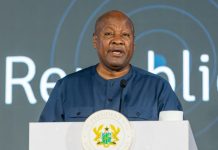


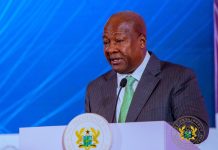

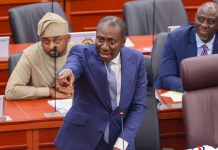
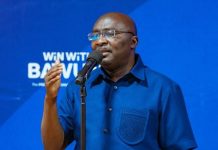
















![[FREE FREE MONEY] Predict and Win a Guaranteed GH¢200 From Us EVERY WEEK](https://wordpress.ghanatalksradio.com/wp-content/uploads/2022/02/Predict-and-Win-Final-09-03-2021-218x150.jpg)
![[Predict & Win – 8th/Oct.] WIN A Guaranteed ¢200 From Us This Week](https://wordpress.ghanatalksradio.com/wp-content/uploads/2021/10/maxresdefault-16-218x150.jpg)
![[Predict & Win – 2nd] WIN A Guaranteed ¢200 From Us This Week](https://wordpress.ghanatalksradio.com/wp-content/uploads/2021/09/maxresdefault-50-218x150.jpg)
![[Predict & Win – 25th] WIN A Guaranteed ¢200 From Us This Week](https://wordpress.ghanatalksradio.com/wp-content/uploads/2021/09/maxresdefault-36-218x150.jpg)
![[Predict & Win – 18th] WIN A Guaranteed ¢200 From Us This Week](https://wordpress.ghanatalksradio.com/wp-content/uploads/2021/09/maxresdefault-23-218x150.jpg)




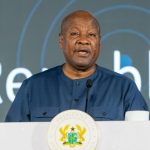





![[National cathedral] See full list of churches that have contributed since 2018](https://wordpress.ghanatalksradio.com/wp-content/uploads/2020/09/Ghana-National-Cathedral-GhanaTalksRadio-100x70.jpg)



